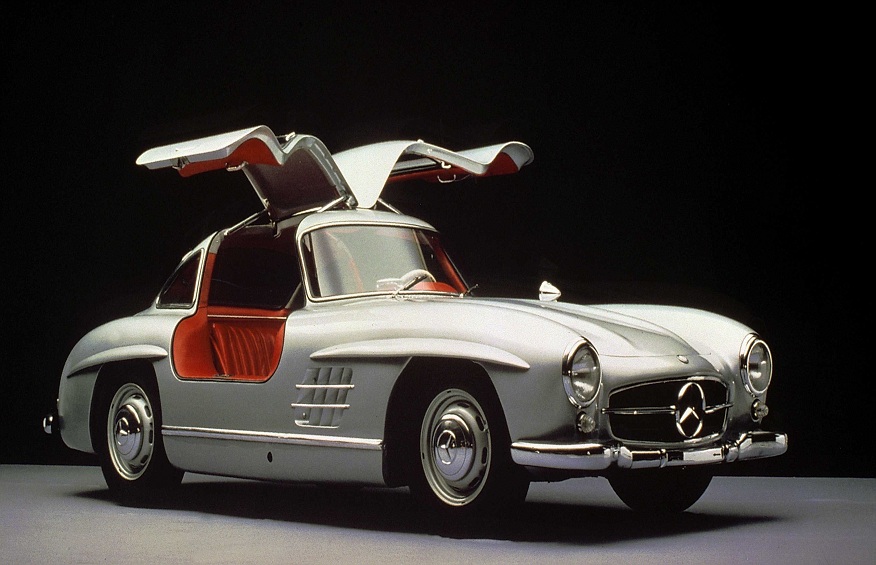Classic cars are more than just vehicles; they are a representation of a bygone era, evoking nostalgia and romanticism among car enthusiasts. For many people, owning a classic car is not just about owning a piece of history, but also about the driving experience and the sense of pride that comes with it. Despite the emergence of modern technology and innovation in the automotive industry, classic cars continue to hold a special place in the hearts of collectors and enthusiasts alike. Here, we will explore the reasons why classic cars remain popular decades later and why you should look for classic cars for sale.

Nostalgia and Historical Significance
One of the main reasons why classic cars continue to be popular is their historical significance. They are symbols of an era gone by, representing a time when cars were not just a means of transportation but a statement of personal style and expression. Classic cars are often associated with the iconic events of their respective time periods, such as the 1960s muscle cars or the 1950s American cruisers. Owning a classic car allows enthusiasts to preserve a piece of automotive history, and relive the memories of that era.
Design and Style
Another reason why classic cars remain popular is their unique design and style. Classic cars were crafted by skilled designers and engineers, who paid attention to every detail, from the curves of the bodywork to the placement of the headlights. Classic cars were designed with the aim of creating a work of art that would turn heads and make a statement. The sleek and aerodynamic lines of classic cars were intended to be both visually appealing and functional, allowing for better performance and handling.
Craftsmanship and Quality
Classic cars were built by hand, with meticulous attention to detail and quality. Unlike modern cars, which are often assembled on an assembly line using automated processes, classic cars were created by skilled craftsmen who took pride in their work. Classic cars were built to last, with durable materials and high-quality components. Owning a classic car is a testament to the workmanship and quality that went into its creation.
Driving Experience
Driving a classic car is a unique and thrilling experience, unlike any other. Classic cars were built for driving pleasure, with a focus on performance, handling, and responsiveness. Driving a classic car is a sensory experience, from the sound of the engine to the feel of the steering wheel. Classic cars require skill and attention, and driving one is an immersive experience that transports you back in time.
Investment Value
Classic cars are not just symbols of nostalgia and craftsmanship, but also valuable assets. Classic cars are often seen as investments, with some models increasing in value over time. Collectors and enthusiasts purchase classic cars not only for their aesthetic appeal and driving experience but also as a long-term investment. Classic cars that are well-maintained and preserved can appreciate significantly in value, making them a worthwhile investment.
Classic cars continue to be popular decades later for a multitude of reasons. From their historical significance and unique design to their craftsmanship and driving experience, classic cars are more than just vehicles; they are a representation of a bygone era. Owning a classic car is not just about owning a piece of history; it’s about the driving experience, the sense of pride, and the investment value. Classic cars are timeless works of art that continue to captivate enthusiasts and collectors alike.
Investment and Value: Appreciating Assets and Collectible Items
Classic cars can also be considered investments, as they often appreciate in value over time. Owning a classic car can be a way to diversify your investment portfolio and to enjoy a tangible asset that can be enjoyed and appreciated over time. The value of classic cars is often based on their rarity, condition, and historical significance, making them highly sought after by collectors and enthusiasts alike.
Maintenance and Restoration: Keeping Classic Cars in Pristine Condition
Owning a classic car isn’t just about buying one and driving it around town; it’s also about maintaining and restoring it to keep it in pristine condition. Maintaining a classic car can be a labor of love, but it’s an important part of ensuring that your investment retains its value and remains in drivable condition.
Regular maintenance, such as oil changes, brake inspections, and tire rotations, is critical to keeping a classic car running smoothly. Finding a trusted mechanic who specializes in classic cars is key, as they will have the knowledge and expertise to work on vintage vehicles. It’s also important to stay on top of any necessary repairs or replacements, as small issues can quickly turn into bigger and more expensive problems if left unaddressed.
In addition to regular maintenance, many classic car owners opt to restore their vehicles to their original condition or customize them to their liking. This can involve anything from a fresh coat of paint to a complete overhaul of the engine and transmission. While restoration work can be time-consuming and costly, it can significantly increase the value of a classic car and make it a one-of-a-kind masterpiece.
Community and Culture: Connecting with Other Classic Car Enthusiasts
Owning a classic car isn’t just about the car itself – it’s also about the community and culture that surrounds it. Classic car shows and events are popular gatherings for enthusiasts to come together and admire each other’s vehicles. These events provide opportunities to connect with like-minded individuals, learn more about classic cars, and showcase your own vehicle.
In addition to events, many classic car owners also join clubs or organizations dedicated to vintage cars. These groups offer resources and support for maintaining and restoring classic cars, as well as opportunities to network with other owners and attend exclusive events.
Environmental Consciousness: The Sustainability of Classic Cars
As the world becomes increasingly focused on sustainability, some may question the environmental impact of classic cars. While it’s true that older cars typically have lower fuel efficiency and higher emissions than modern vehicles, it’s important to consider the overall impact.
Many classic cars are driven sparingly, as they are often used for pleasure rather than daily transportation. This means that their overall impact on the environment is minimal compared to the millions of newer cars on the road every day. Additionally, classic cars are often cherished and passed down through generations, which means they are not being produced or consumed at the same rate as newer vehicles.
Conclusion
The enduring appeal of the most luxurious car can be attributed to a variety of factors. Nostalgia, design, craftsmanship, and driving experience are just a few of the reasons why these vehicles remain popular decades later. The investment and value of classic cars, as well as the community and culture that surrounds them, further add to their appeal. Additionally, classic cars can be maintained and restored to keep them in pristine condition, and the sustainability of these vehicles is often overlooked. For all these reasons and more, classic cars will continue to capture the hearts and minds of car enthusiasts for generations to come.
